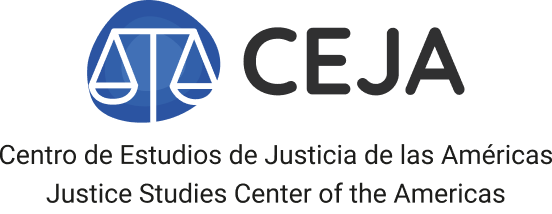Watch the Video of the Conversation (in Spanish)
A historical challenge for the region’s judicial systems is the proper management of procedural congestion. Since its inception, JSCA has focused on the need to generate comparable data on judicial production, resolution rates and procedural congestion rates in justice institutions as central issues in the agenda and discussions on the efficiency of justice institutions[1].
The control of procedural congestion is key in justice institutions as it has an impact on access to justice for users and also on the internal structures themselves.
In the first place, procedural congestion limits access to justice for users from a people-centered justice perspective, particularly for the vulnerable population. For example, in criminal matters, the mismanagement of procedural congestion and the consequent delay in proceedings has an impact on the abusive use of pretrial detention, as well as on impunity in simple and complex proceedings. In family matters, the untimely resolution of cases has an impact on the timely protection of the rights of children and adolescents.
In labor matters, the delay in the resolution of cases has an impact on the legal protection of rights derived from legal liabilities due to work accidents or occupational diseases. Civil disputes not dealt with in a timely manner by the justice systems generate high costs in time and money for the parties.
Secondly, procedural congestion increases the risk of corruption in justice institutions. Delays and inefficiency in judicial systems create environments conducive to corrupt practices, such as bribery or deliberate delays, and promote contexts that invisibilize and cover up such practices.
The costs generated by judicial procedural congestion constitute a fourth area of impact of analysis, both at the level of internal costs and external costs to justice institutions. Internally, procedural delay calls into question the production capacity of justice institutions and the efficiency of their organization and resource management. Externally, procedural congestion increases defense costs, which, as mentioned above, especially affects vulnerable people.
A sixth aspect of the analysis of the impact of procedural congestion is related to technologies (ICTs) and the use of artificial intelligence. Today, in addition to traditional mechanisms for dealing with procedural congestion, such as decongestion plans and corporate models for judicial offices, there are ample possibilities offered by ICTs and artificial intelligence. From JSCA’s perspective, the main purpose of using these tools should be to reduce the gaps in access to justice for users, preventing the violation of fundamental rights related to privacy, protection of personal data, freedom of expression, access to information, protection against discrimination, and the right to access impartial justice and due process of law.
Finally, the absence of statistics on procedural congestion and the measures adopted to address it in justice institutions has an impact on legitimacy and citizen confidence in justice systems, which is reflected in confidence in the rule of law and democracy.
Objectives:
To learn about the situation of procedural congestion in Latin American countries and good practices to manage it adequately.
The presentations will be guided by the following questions:
What is the status and impact of judicial congestion in your country?
What good practices are being implemented in the Judiciary to counteract procedural congestion?
What opportunities do ICTs and artificial intelligence offer to improve attention to procedural congestion in justice institutions?
Target Audience
Judges, prosecutors, public defenders and litigants, administrative support staff of justice institutions, civil society organizations and the academic sector, students and the legal community in general in Latin America.
